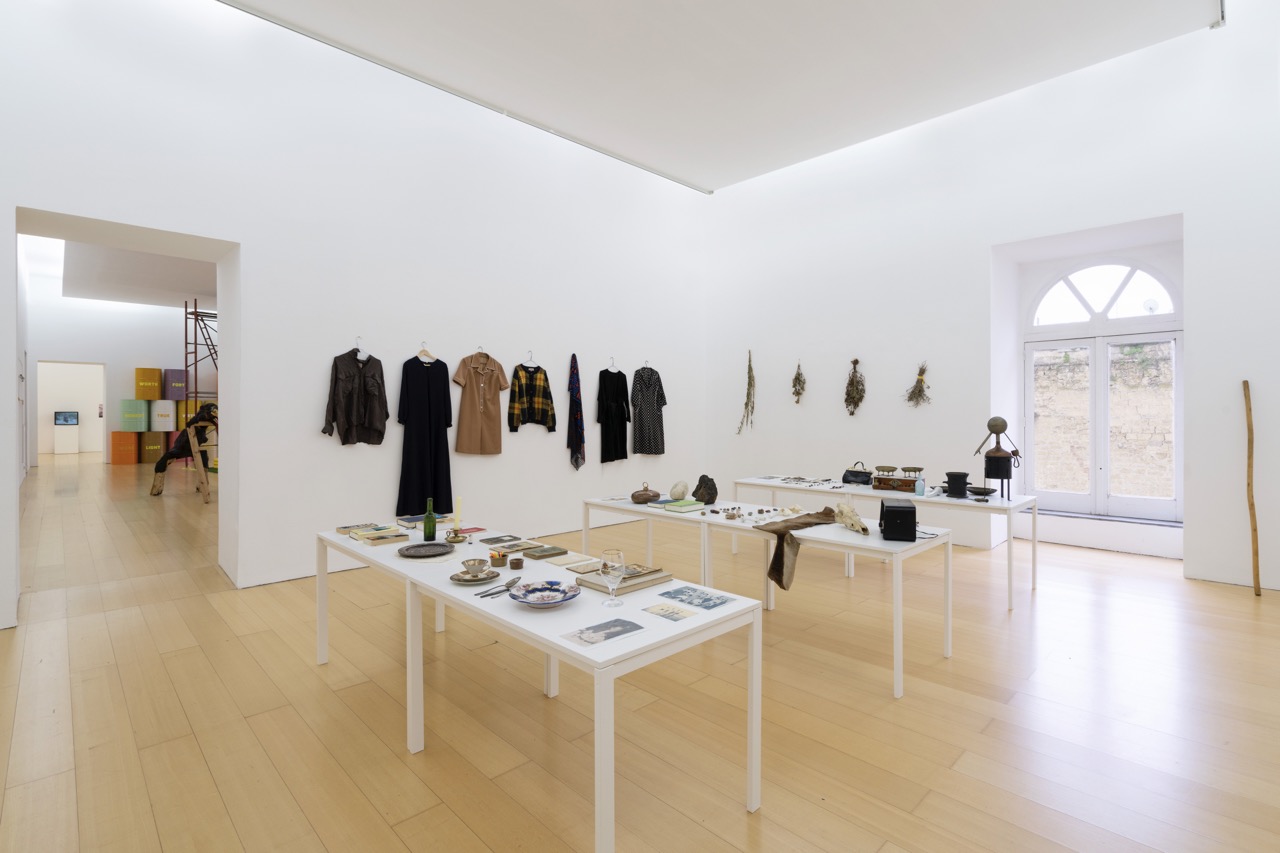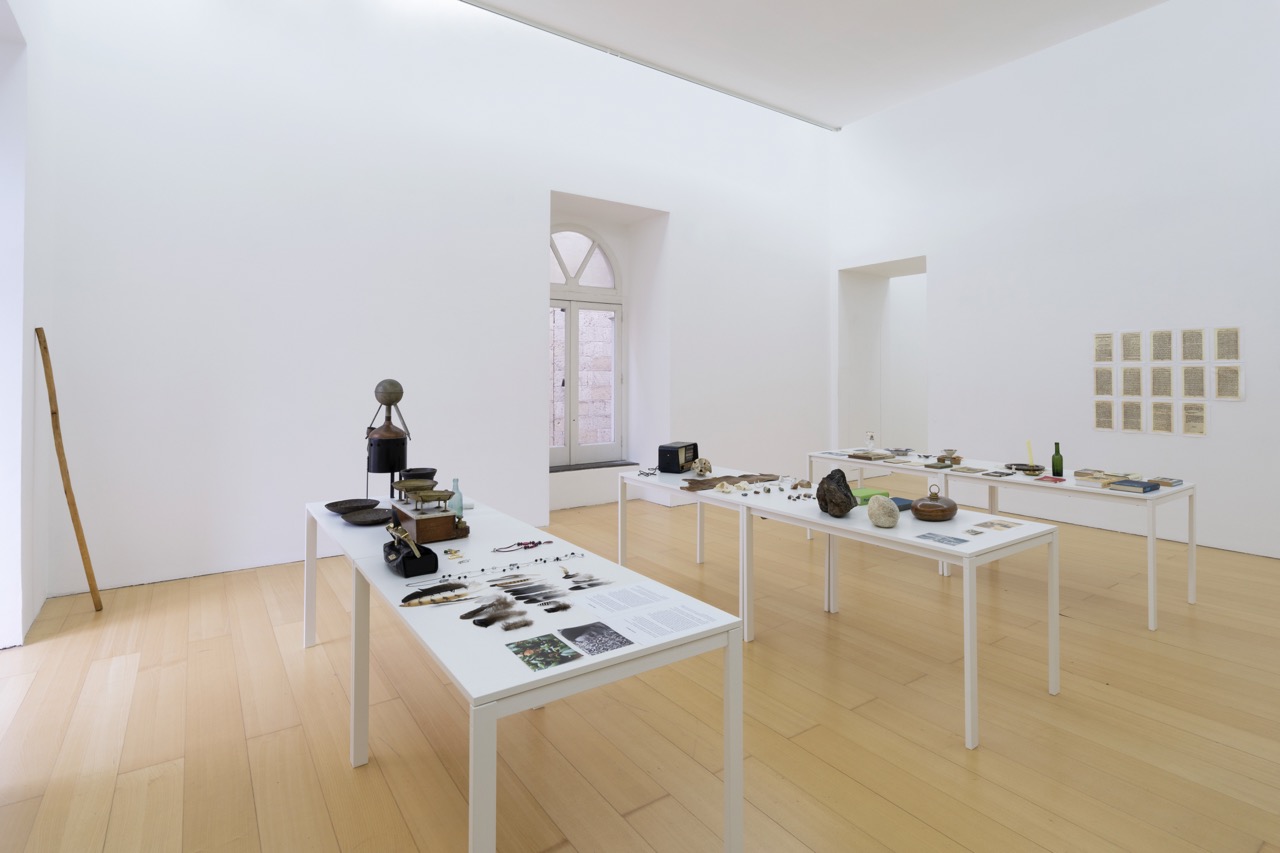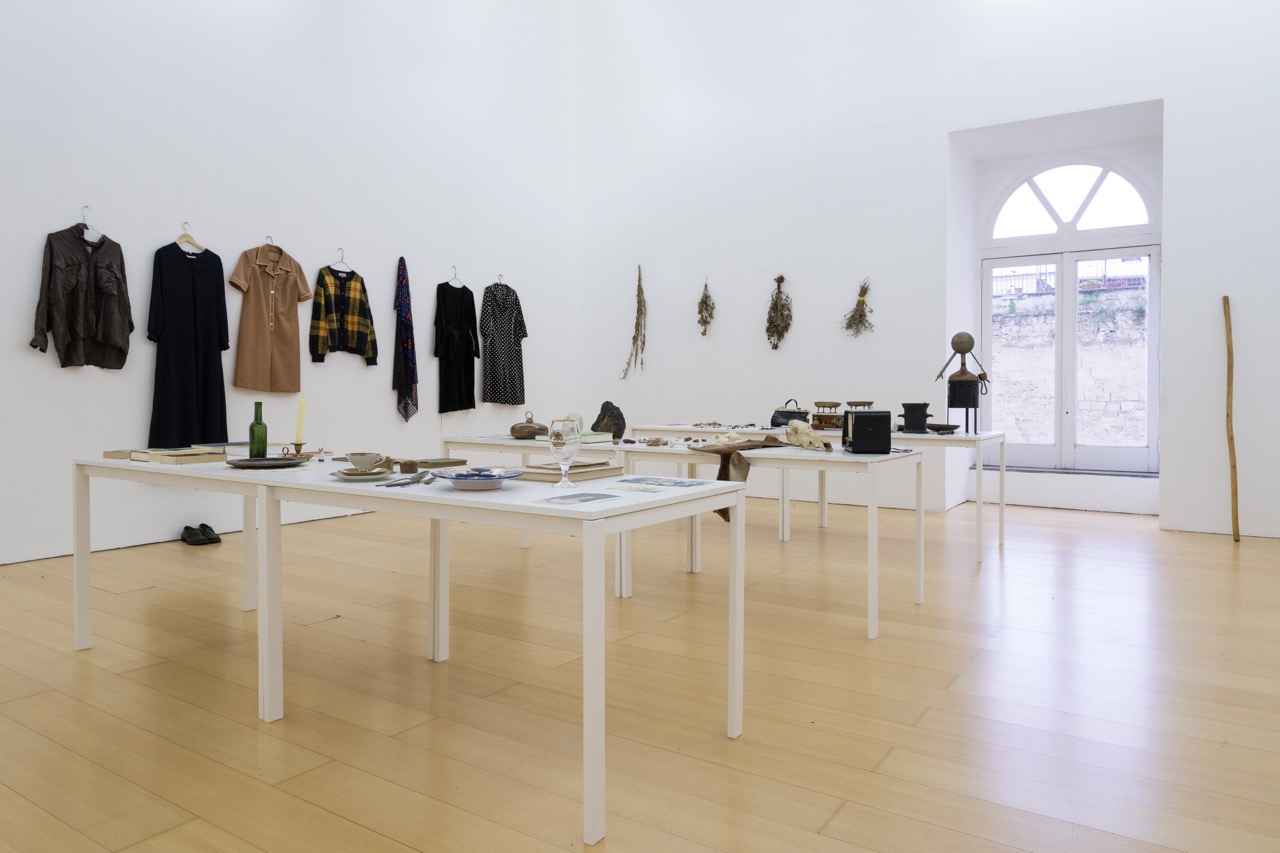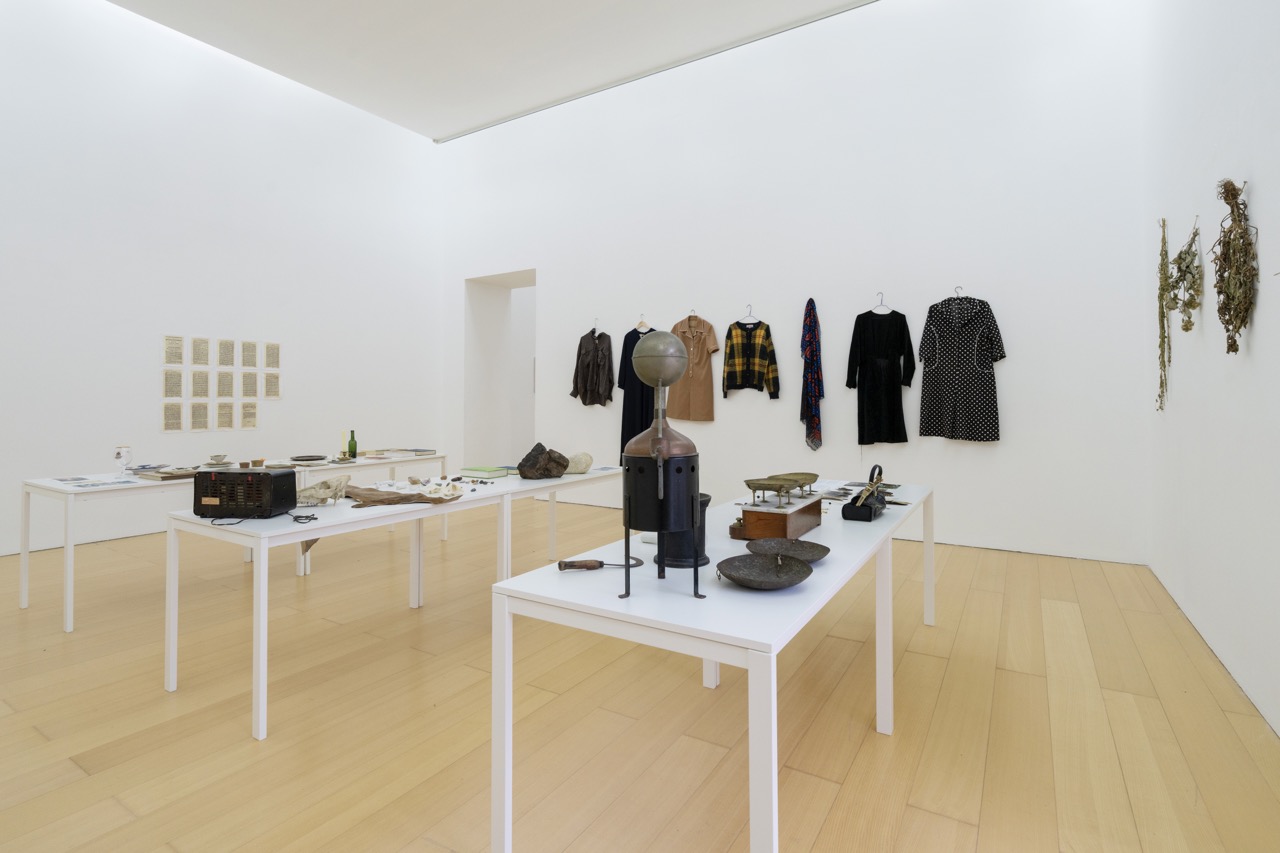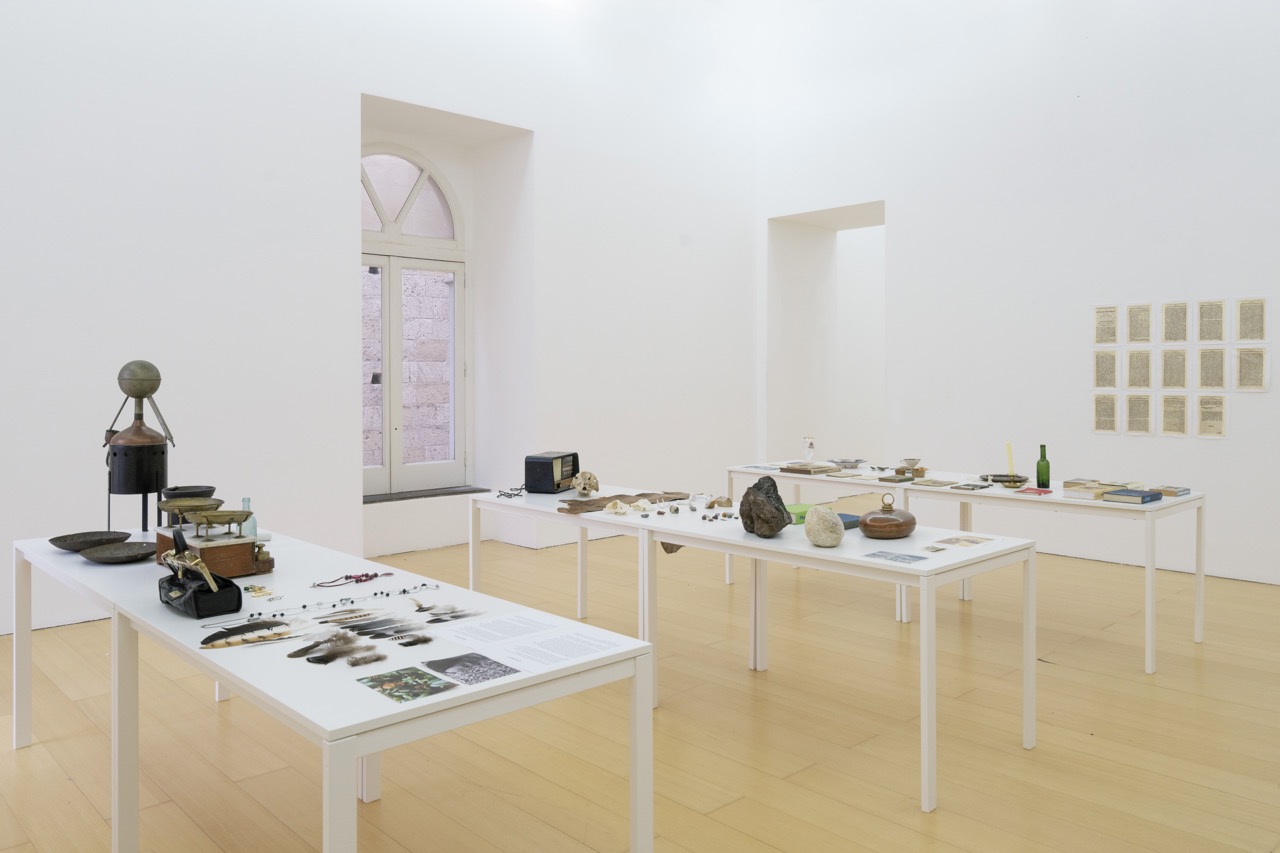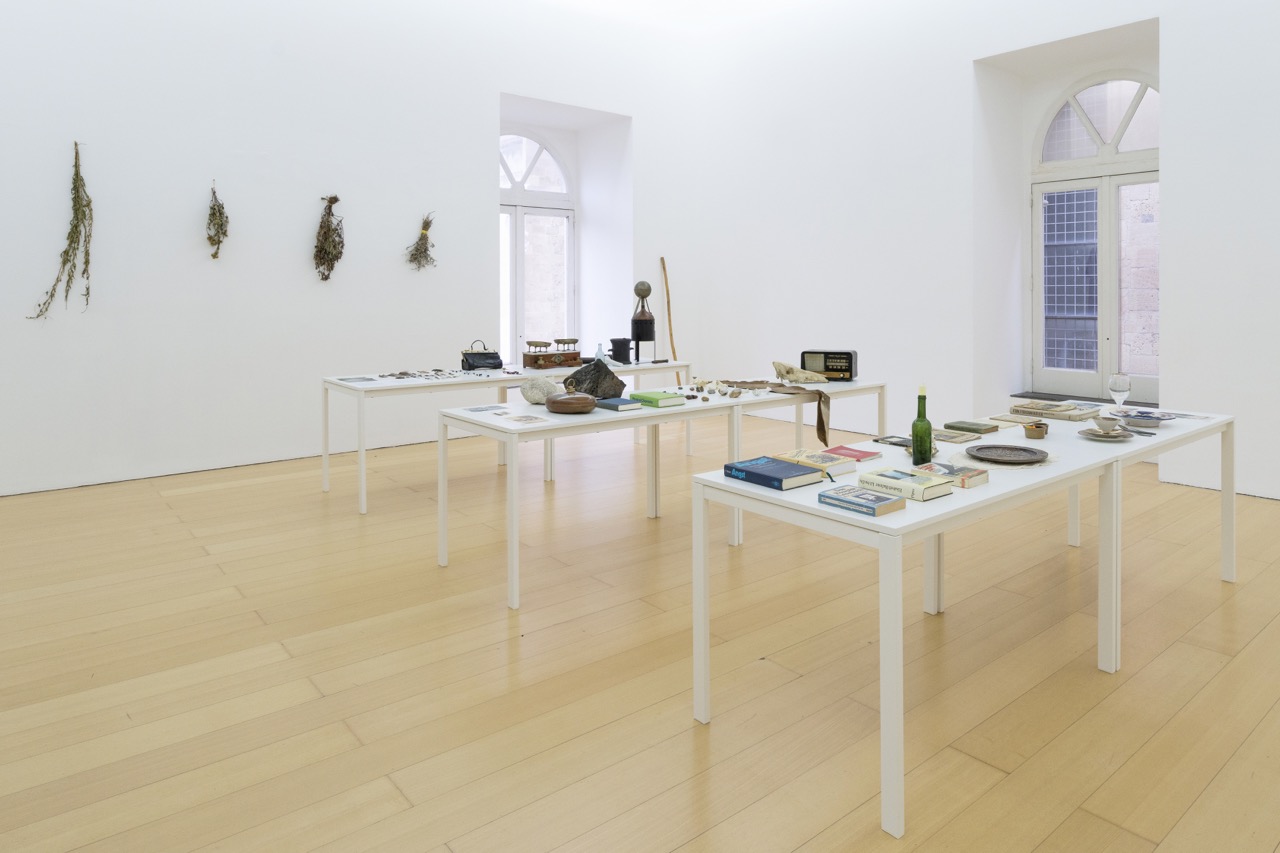In 2016 Durham was commissioned to produce a work for the small German town of Goslar, after having been awarded the Goslar Prize. In his research he discovered that, throughout the sixteenth and seventeenth centuries, the town mounted trials accusing and convicting women of witchcraft. In response to this history, Durham conceived an installation that revolves around a fictional woman character by the name of Notburga Harzer, who is under investigation by the police. Household objects, books and clothes are laid out on office desks, presumably her possessions. The installation Evidence cites police displays of evidence contrived to convict suspects: ‘If someone’s house or apartment, or where someone lives, is broken into by the authorities anything that is found or not found can be seen as evidence for criminality’, says Durham. Accompanying the display are photocopies of Immanuel Kant’s essay ‘Answering the Question: What Is Enlightenment?’ (1784). The juxtaposition of spurious ‘evidence’ with this fundamental text of the European Enlightenment points to contradictions at the heart of distinctions between the ‘rationality’ associated with modernity and ‘superstition’. Philosopher and activist Silvia Federici has argued that the witch hunts that took place in Europe and lead to the executions of hundreds of thousands of women were fundamental to the reorganization of reproductive labour that enabled the creation of industrial labour conditions in the development of capitalism.
Jimmie Durham: humanity is not a completed project, installation view of the exhibition at the Madre museum, 2023. Photo by Amedeo Benestante
